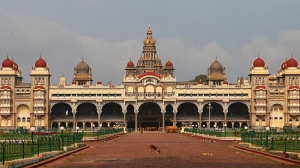Burma calling
Time to be proactive again on this very special eastern neighbour. Else, China will fill the void

India tends to keep its own counsel even when the CPM leader Prakash Karat, the US President George W. Bush, and the Hollywood comedian Jim Carey are on the same side of a complex international issue. That India has not jumped on to the US bandwagon of promoting democracy in Burma and continues to engage the bunch of Generals there should remind Karat that his notion that New Delhi is becoming a subordinate ally of Washington is at best a fanciful one. If Karat8217;s black and white imagery of the nation8217;s foreign policy had room for some shades of grey, the Indian communists might have more effectively contributed to the UPA government8217;s conduct of international relations.
For nearly two decades, India has struggled to define an appropriate response to the suppression of democracy in Burma. Unlike Karat, Bush and Hollywood, who all support political change in Burma, India does not have the luxury of defining its diplomacy, especially towards its neighbours, in simple ideological terms. Given the historical association with Burma, which shares long land and maritime boundaries with India, New Delhi had to take a variety of factors into account. At a time when championing democracy in Burma was not fashionable, Rajiv Gandhi boldly extended support to the non-violent movement launched by the courageous Aung San Suu Kyi in the late 1980s. With neither the West nor the East willing to rally behind India, New Delhi was compelled to reassess its approach to Rangoon in the early 1990s. A more realistic policy of 8216;engagement without endorsement8217; emerged. India8217;s pragmatism rested on three considerations 8212; the need for Burmese Army8217;s cooperation in dealing with the insurgencies in the Northeast, Burma8217;s natural role as a land-bridge to Southeast Asia, and the importance of preventing Burma8217;s total dependence on China for external support.
India8217;s realpolitik in Burma is now under stress as an alliance of Buddhist monks and the pro-democracy activists mount a challenge against the Army rule. For a whole week now, the Buddhist monks have offered a breath-taking public defiance of the Generals. Sooner than later, Burmese military will end its paralysis. Whether the Generals accommodate the democratic aspirations of the people or resort again to brutal force, Burma is unlikely to remain the same. Meanwhile, New Delhi must prepare itself to address the tumultuous period ahead in Burma and chart a new approach rooted in India8217;s enduring national interests in a very special eastern neighbour.
- 01
- 02
- 03
- 04
- 05































